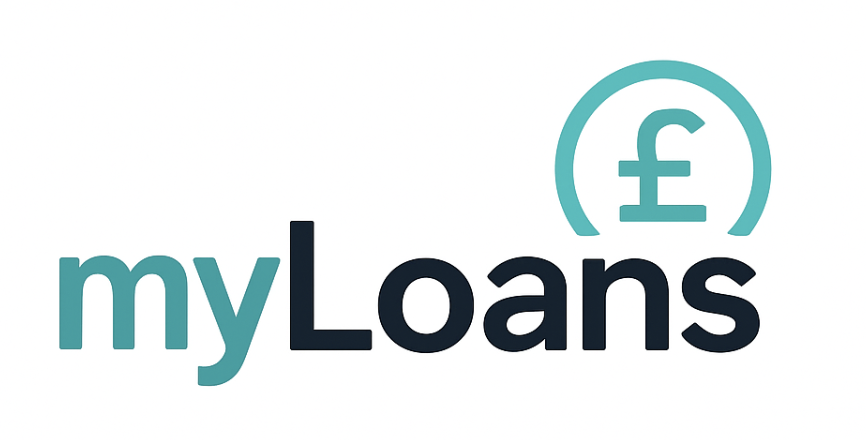Table of Contents
Introduction: Why Choosing the Right Car Finance Matters
Buying a car is one of the biggest financial commitments for UK households. With average car prices rising, few buyers can pay upfront in cash. That’s where car loans and finance options come in.
In the UK, you’ll typically choose between:
-
A personal loan from a bank or online lender
-
Hire Purchase (HP) agreements through a dealership
-
Personal Contract Purchase (PCP) deals, now the most popular finance option
-
Leasing (PCH) for those who never want to own outright
This guide explores the pros, cons, and costs of car loans in 2025, helping you decide which method works best for your budget and goals.
What Is a Car Loan?
A car loan is usually an unsecured personal loan used to buy a vehicle. The bank or lender gives you the funds upfront, you buy the car outright, and then repay the loan in fixed instalments.
-
Ownership: You own the car immediately.
-
Repayments: Fixed term, 1–7 years.
-
APR: Depends on credit score, typically 6%–20%.
Car Finance Alternatives in the UK
1. Hire Purchase (HP)
-
Deposit + monthly payments
-
You don’t own the car until the final payment
-
Usually higher monthly payments than PCP
2. Personal Contract Purchase (PCP)
-
Low deposit, low monthly payments
-
Option at end: pay balloon payment to own, or return car
-
Popular for new cars due to flexibility
3. Leasing (PCH)
-
You rent the car for a fixed period
-
No option to buy at the end
-
Suits drivers who like changing cars often
Costs Compared: Personal Loan vs PCP vs HP
Example – Car Price: £15,000
-
Personal Loan: £15,000 at 7.9% APR over 5 years = ~£303/month, total repayable ~£18,180. You own car outright.
-
HP: £2,000 deposit + £300/month for 48 months = £16,400 total. Car ownership at end.
-
PCP: £2,000 deposit + £200/month for 36 months + £7,000 balloon = £16,200 total if you buy, or cheaper if you return car.
👉 PCP usually gives the lowest monthly cost but highest long-term uncertainty.
Pros and Cons of Personal Loans for Cars
Pros
-
Own the car from day one
-
Flexibility: buy from dealer, auction, or private seller
-
Often cheaper than dealer finance if you qualify for low APR
Cons
-
Requires good credit for best rates
-
Higher monthly payments than PCP
-
Risk: depreciation may leave you in negative equity if you sell early
Eligibility and Lender Criteria
To get a car loan in the UK, lenders check:
-
Credit history (clean files get ~6–8% APR, bad credit may see 30%+)
-
Income and affordability
-
Employment type (full-time vs self-employed)
-
Loan amount (typical £2,000–£25,000)
💡 Tip: Use soft search eligibility tools before applying.
Car Loans for Bad Credit
Yes, you can still get approved, but:
-
APRs will be higher (20%–49%).
-
Lenders may cap loan size at £5,000–£10,000.
-
Alternatives: guarantor loans, credit union car loans, or dealer finance with higher rates.
Alternatives to Car Loans
-
0% Dealer Finance Offers: Sometimes available on new cars.
-
Credit Cards: Useful for small deposits or if you qualify for 0% purchase deals.
-
Salary Sacrifice EV Schemes: Growing for electric vehicles in the UK.
-
Leasing: For drivers who want flexibility with no ownership risk.
Practical Tips Before Applying
-
Check your credit file for errors.
-
Set a realistic budget (car + insurance + tax + MOT + maintenance).
-
Compare loan APR vs dealer finance before committing.
-
Factor in depreciation — new cars lose ~20–30% value in year one.
-
Avoid long terms (e.g., 7 years) unless necessary — you could still be paying when the car’s value has dropped.
FAQs
Q: Is a personal loan better than PCP?
If you want to own the car outright, yes. PCP is better if you want lower monthly costs or plan to swap cars regularly.
Q: What’s the cheapest way to finance a car?
Usually a low-APR personal loan if you qualify. But for new cars, manufacturer 0% finance offers can be unbeatable.
Q: Can I sell a car bought with a personal loan?
Yes — because you own it outright. With PCP or HP, you can’t sell until the agreement ends.
Q: Do car loans require a deposit?
Not usually. Unlike dealer finance, personal loans can cover 100% of the purchase price.
Conclusion: Pick the Right Road for You
When buying a car in the UK, the right finance option depends on your priorities. A personal loan gives ownership and flexibility but requires higher monthly payments. PCP and HP spread costs differently, often with lower upfront commitments but less long-term freedom.
Always compare APRs, total repayable amounts, and your personal circumstances before deciding. Whether you’re upgrading to a family SUV, buying your first car, or switching to electric, smart financing ensures your car doesn’t become a financial burden.
Personal Loan Debt Consolidation UK – Is It Right for You?
Juggling multiple credit cards, overdrafts, or loans can be stressful and expensive. A debt consolidation loan allows you to combine everything into a single monthly repayment, often at a lower interest rate. In 2025, UK lenders from high street banks to online...
Emergency Loans UK – How to Borrow Fast in 2025
When an urgent expense hits — like car repairs, medical bills, or a broken boiler — quick access to funds can be essential. In 2025, emergency loans in the UK provide a way to borrow fast, with some lenders offering same-day decisions and payouts. This guide explains...
Top 10 Personal Loan Providers UK 2025 – Rates, Features & Eligibility
The UK personal loan market in 2025 offers more choice than ever, with banks, supermarkets, online lenders, and credit unions all competing for borrowers. The best deal for you depends on your credit score, loan size, and repayment term — but comparing providers side...
Best Debt Consolidation Loans UK 2025 | Top Options
Managing multiple debts can feel overwhelming, especially with credit cards, overdrafts, and personal loans all charging different interest rates. A debt consolidation loan can simplify your finances by rolling everything into one fixed monthly repayment — often at a...
Best Bad Credit Loans UK 2025 – Top Lenders Compared
Having a poor credit score, CCJs, or past defaults doesn’t mean borrowing is out of reach. In 2025, several UK lenders specialise in products designed for people with bad credit — offering smaller loans, flexible repayment terms, and eligibility checks that won’t harm...
Home Repair Loans UK – How to Cover Unexpected Costs in 2025
A leaking roof, broken boiler, or urgent plumbing issue can quickly turn into an expensive problem — often when savings aren’t available. In 2025, home repair loans in the UK provide a way to spread the cost of essential fixes into manageable monthly repayments. This...
Green Energy Loans UK – How to Finance Eco-Friendly Home Improvements in 2025
Eco-friendly upgrades such as solar panels, insulation, heat pumps, and EV chargers can cut energy bills and boost property value — but they require a significant upfront investment. In 2025, green energy loans in the UK provide a way to spread the cost of sustainable...
Moving House Loans UK – How to Cover Relocation Costs in 2025
From deposits and removal vans to solicitor fees and new furniture, moving house in the UK can quickly add up to thousands of pounds. Not everyone has savings set aside to cover these costs upfront. In 2025, moving house loans in the UK provide a way to spread...
Education Loans UK – How to Fund Studies and Professional Courses in 2025
Not all education in the UK is covered by government student finance. Postgraduate degrees, professional qualifications, and private training often require self-funding — with tuition fees and course costs running into thousands of pounds. In 2025, education loans in...
Holiday Loans UK – How to Spread the Cost of Travel in 2025
Holidays can be some of the most rewarding experiences of the year, but they often come with a price tag that’s hard to cover upfront. From flights and hotels to all-inclusive packages and once-in-a-lifetime trips, the costs can add up quickly. In 2025, holiday loans...
Best Personal Loans UK 2025 – Top Lenders Compared
The UK personal loan market in 2025 is more competitive than ever, with high street banks, supermarkets, online lenders, and credit unions all offering products to suit different needs. Choosing the right provider can save you hundreds in interest and ensure...
Medical Loans UK – How to Finance Healthcare Costs in 2025
While the NHS covers most essential treatment, waiting lists, private care, and specialist procedures mean many people face out-of-pocket medical expenses. From dental work and fertility treatment to cosmetic surgery and urgent private healthcare, costs can run into...
Home Improvement Loans UK – How to Finance Renovations in 2025
Planning a new kitchen, loft conversion, or energy-efficient upgrade can transform your home’s value and comfort — but the upfront costs are often daunting. In 2025, home improvement loans in the UK provide a way to spread renovation expenses into affordable monthly...
Bad Credit Personal Loans UK 2025 | Complete Borrowing Guide
Defaults, CCJs, or missed payments don’t have to shut you out of borrowing. In 2025, UK lenders still offer options for people with less-than-perfect credit — from credit unions and guarantor providers to online specialists. This guide explains how bad credit personal...
How to Use a Personal Loan Calculator to Plan Your Borrowing
A personal loan calculator is one of the easiest ways to understand what a loan will really cost you. By entering the amount you want to borrow, the interest rate, and the repayment term, you can see your monthly repayments and the total cost over time. This simple...

















